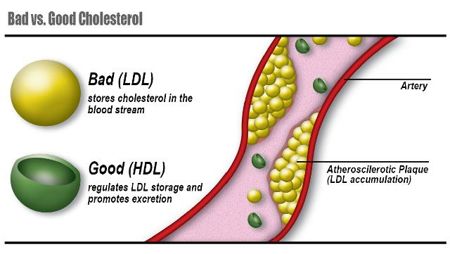Gastric Surgery For Weight Loss Improves Good Cholesterol Levels — Dr. Christine Ren-Fielding
UncategorizedA New Study Reveals that Gastric Sleeve Surgery Increases HDL Levels
High cholesterol is one of many health issues that can arise from untreated obesity. Bariatric surgery procedures often improve cholesterol levels. It’s been unclear if this is a direct result of the surgery, however. A new study by Vuono and colleagues explored this phenomenon for the first time. They observed improvement of “good cholesterol” levels in patients after gastric sleeve surgery. The effect results from the surgery and not the patients’ diets or other factors. This supports recommendation of gastric surgery for weight loss by bariatric surgery experts like Dr. Christine Ren-Fielding.
Ratios of Bad vs. Good Cholesterol
Molecules in the blood called lipoproteins help transport cholesterol through the blood to its destination. LDL (low-density lipoprotein) binds cholesterol to take it to cells needing the molecule. If there is more cholesterol than needed, the LDL begins forming plaques which can cause cardiovascular disease. That’s why LDL is often called “bad cholesterol.”
In contrast, HDL (high-density lipoprotein) helps clear cholesterol from the blood by taking it to the liver and other tissues. Increasing the levels of this “good cholesterol” can thus help control plaque formation. Higher levels of HDL thus produce better health outcomes.

When doctors like Dr. Christine Ren-Fielding check your cholesterol levels, they are examining the ratio of bad vs. good cholesterol.
Cholesterol Levels After Gastric Sleeve Surgery
Vuono and colleagues examined the outcomes for 42 obese patients who underwent gastric sleeve surgery. Each had a series of clinical tests before the surgery, including physical examinations and blood tests. The medical teams also performed ultrasounds to get accurate measures of body fat. Doctors performed the same tests again ten months after bariatric surgery. They also compared outcomes from a control group of 20 subjects without obesity.
As expected, gastric surgery for weight loss reduced BMI, waist circumference, and body fat (as measured by ultrasound). Blood pressure, triglycerides, insulin, and glucose levels had also improved. While there were no differences in LDL or cholesterol absorption markers, HDL levels significantly increased. These changes were independent of cholesterol intake through food, leading the researchers to conclude they were due to bariatric surgery.
In conclusion, this gastric surgery for weight loss improves cholesterol levels.
For a Bariatric Surgery Consultation with Dr. Christine Ren-Fielding
Are you are struggling with obesity and related issues such as high cholesterol? Are you interested in gastric sleeve surgery or another gastric surgery for weight loss? Please contact Dr. Christine Ren-Fielding and colleagues at the NYU Langone Weight Management Program.
No comments yet.